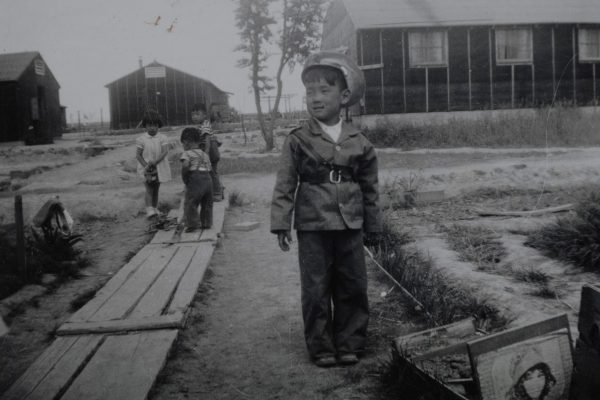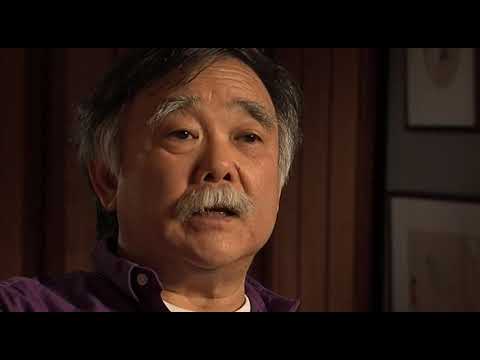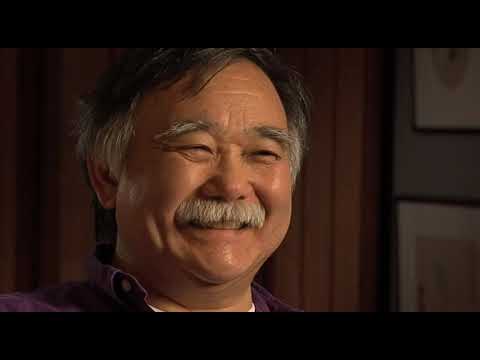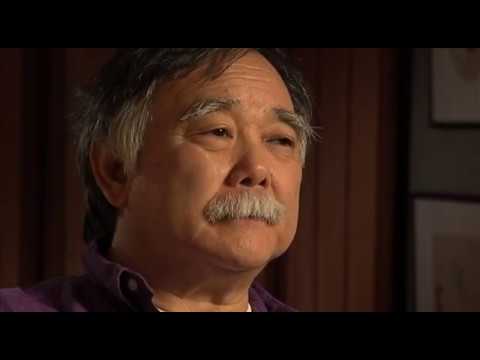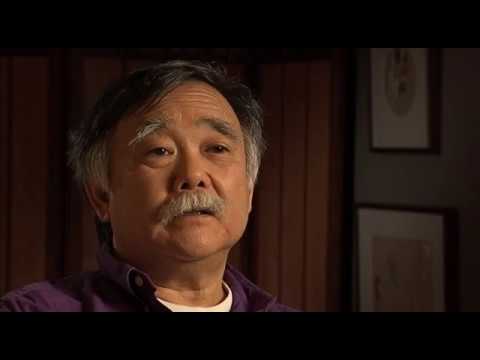Minidoka oil furnace, spit wads, smoking – Frank Kitamoto (OH0045)
Transcript
Well, Manzanar, I remember the oil furnace that was in the… our source of heat. It was a little oil furnace that sat in the middle of the floor and it used to scare me half to death ’cause it would roar, kind of make a roaring noise. But one day I got really curious, so I just stuck a piece of paper in there to see what would happen. And it immediately caught fire, and, and fortunately my uncle came walking through the door and stomped the paper out. But I probably would have burnt the whole camp down if he hadn’t walked through the door. So, you know, those kind of things I do. And then in Minidoka, I remember once almost hanging myself. I was swinging on a rope that hung loose, and there was another rope next to it, and I slipped off this rope and that other rope wrapped around my neck.
And my cousin Hiro, who’s a year older than I was — I must have been about four — ran into the barrack and got a knife and cut me down. And I don’t think if he cut me down I would be around here, ’cause I remember that rope burn being there for a long time. I remember being trampled at a Miss Minidoka contest because I was sitting in the front row and everybody surged forward when they announced the winner. [Laughs] And my sister took me to the camp hospital there and they were picking gravel out of me. I remember, I remember spit wad fights that the older kids used to have. They would go to the laundry room and tip over the ‘ I guess it was maybe the rec. room — anyway, they tipped over the ping pong tables and they would sit behind the ping pong tables and shoot these paper spit wads at each other. And then when they ran out of ammunition, us little kids had to run out there and grab as many of the ammunition as we could and bring it back for our side. I remember being pulled around on the swimming pool pond when it froze over in wintertime. Lefty Katayama, who was in the counterintelligence at the time, he was on leave from the army and he would pull me around on the sled. And that was really something I remember.
I remember going out to the sagebrush once at night. And I, I have a feeling that Block 44, which is the last block ’cause we were there last, didn’t have any fencing at the, at one of the, at our end of the concentration camp. And I remember going out in the sagebrush and seeing cowboys. They had a, their wagons there — actually, it might not have been cowboys. It might have been sheep boys since I think it was sheep out there. But it was the first time I had seen a real live quote/unquote “cowboys,” and it was kind of fun doing that. I remember the older kids digging a network of tunnel under the barracks, and then they let me go into the tunnel. And it was… they had candles and stuff in there and it was like a big secret passageway with secret caves and stuff. And I don’t remember anybody telling me about that or anybody even verifying they were with me, but I remember those tunnels.
I remember once trying to be a grownup and taking a pack of cigarette from my dad’s dresser and going underneath the barrack and smoking the whole pack. And I remember really being sick and somebody telling me, “Oh, you should drink a, eat a lot of chocolate bars so you could kill the smell, the taste.” But I think I was sick for about a week and I never told my mom why and I don’t know if she ever knew or not. But I remember I was feeling guilty once while I was in college so I told her about it and she said, “Huh?” So I knew it was safe to tell her. [Laugh] But I never smoked again after being five years old. So it was probably a good life lesson for me.
